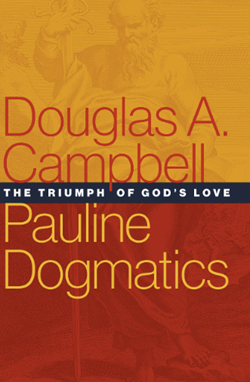Living the Resurrection

The irony of Christianity is a dual reality: the reality of sin and sinfulness among Christians and the reality of having died and having been raised with Christ. Simultaneously justified and sinful is how Luther put it.
The apostle Paul puts it like this:
For through the law I died to the law, so that I might live to God. I have been crucified with Christ; and it is no longer I who live, but it is Christ who lives in me. And the life I now live in the flesh I live by faith in the Son of God, who loved me and gave himself for me (Gal 2:19-20).
So if anyone is in Christ, there is a new creation: everything old has passed away; see, everything has become new! (2 Cor 5:17)
But God, who is rich in mercy, out of the great love with which he loved us even when we were dead through our trespasses, made us alive together with Christ—by grace you have been saved— and raised us up with him and seated us with him in the heavenly places in Christ Jesus … (Eph 2:4-6)
Which is to say, all those in Christ – the baptized, those who have died with him and been raised with him – are raised and living the resurrection.
This has been explored as the launch for you and me as Christians by Douglas Campbell in his pastoral theology of Paul, Pauline Dogmatics. He covers this in several chapters and I can but indicate the big ideas here, but each preaches (or should be preached).
The place to begin for Campbell is the Corinthians and he details no fewer than fifteen sin-problems at Corinth among the so-called raised-in-Christ.

Campbell, returning to one of E.P. Sanders’ most important insights, claims that we don’t study and then articulate the problem so we can figure out the solution but the reverse: if the resurrection is God’s final word, then Death is the problem.
Our resurrection is a both-and, a both now and the fully at the End. Our resurrection is rooted in the fact of Jesus’ resurrection:
If, because of the one man’s trespass, death exercised dominion through that one, much more surely will those who receive the abundance of grace and the free gift of righteousness exercise dominion in life through the one man, Jesus Christ (Rom 5:17).
Sin leads to Death, and Death and Sin are overcome by the Life generated by God in raising Jesus from Death.
We are to live, as Paul says in Phil 2:1-11, in the resurrection through the mind:
p.p1 {margin: 0.0px 0.0px 0.0px 0.0px; font: 14.0px 'Times New Roman'}span.s1 {font: 11.0px 'Times New Roman'}… for if you live according to the flesh, you will die; but if by the Spirit you put to death the deeds of the body, you will live. For all who are led by the Spirit of God are children of God (Rom 8:13-14).
The Powers are part of the realm of Death that has been defeated by the resurrection. Jesus was raised for our being made right for our deliverance (Rom 4:25).
For Paul the resurrection, which is completely connected in his world to the future, has been brought into the present. We live in this resurrection, as Philippians makes clear, by “thinking” in new terms, the terms of the reality of Christ’s resurrection. Our past was one of a fleshly mind and body and now we have a spiritual mind and body that transform our perceptions of all that occurs in our world.
This ends, as well, the dualisms that end up being some form of Platonism or Gnosticism.
Jesus Creed is a part of CT's
Blog Forum. Support the work of CT.
Subscribe and get one year free.
The views of the blogger do not necessarily reflect those of Christianity Today.


















